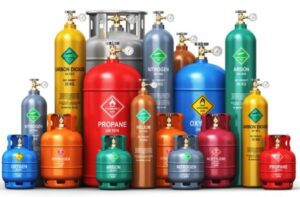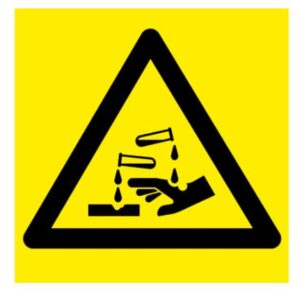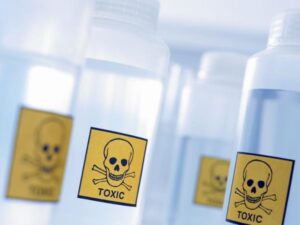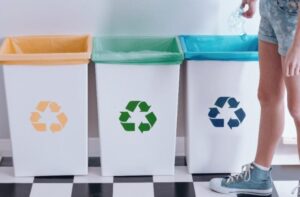Is Your Home Waste Hazardous?
Hazardous waste is the wastes that cannot be disposed of like regular wastes. Throwing such waste down the drain or in the bin can damage the environment and have a severe impact on human health. Hence it is essential to monitor the type of hazardous elements present in your house.
Combustible and Flammable Liquids

There are common liquids used in household that are flammable when near fire. For safety concerns, you should store them in a safe space.
Some flammable liquids found in households are:
- Rubbing alcohol.
- Nail polish remover.
- Aerosol cans.
- Linseed oil.
- All types of painting solvents.
Corrosive Materials

Corrosive materials found in common households include:
- Drain cleaners and other household cleaners.
- Prescription drugs/Pharmaceuticals.
Reactive Materials
Chlorine, iodine, and ammonia are common reactive materials used in most kitchens. These materials are highly reactive and act as an irritant to your skin. They have impact on the health and should be handled with care. Some other reactive materials in the house are:
- Gasoline cans.
- Partially filled aerosol cans.
Toxic Materials

Toxic materials stored in households include:
- Used motor oil.
- Toilet cleaners.
- Chlorine bleach.
- Pool chemicals.
Others
All those products that have a warning of FLAMMABLE, CAUTION, CORROSIVE, EXPLOSIVE, TOXIC and some other similar labels are to be disposed carefully. Learning more about the product before buying can help you identify the toxic element it contains.
How to Dispose of Harmful Materials?
The safe disposal of harmful materials is critical. Throwing off toxic materials like a regular trash can cause great environmental effects which can harm others and yourself in the present and even in the long run.
Proper Care
There are ways you can handle harmful materials. Most materials that come in bottles, or cans, are to be used in that container only. Transforming into other containers such as putting medicines in food containers is a big mistake.
Reduce Waste
To dispose of harmful materials, the only way is to reduce and recycle. The best way to help the environment is to reduce the use of such toxicants. For example, you can do so by coming up with your own home-made household cleaners.
Recycling Harmful Waste
Pouring down harmful chemicals down the drain can corrode the drain lines and the whole sewerage system which just spreads pollution on a large scale.
Additionally, throwing down these wastes in the bins can severely affect the health of the people collecting the household wastes and processing it.
The best way is to recycle this waste. Of course you cannot do that on your own. To your benefit there are many organizations that are made to ensure the betterment of the environment. They provide the disposal service to recycle or to decompose the harmful waste safely.
Can You Throw Hazardous Waste in A Garbage Disposal?

Garbage disposal is not made to handle the hazardous waste you wish to throw into it.
Harmful waste such as bleach, rubbing alcohol, bits and parts of batteries and even drain cleaners can damage the drain lines which corrodes the whole sewerage water and causes problems at water treatment plants.
Nevertheless, food items and small food leftovers that are not greasy or oily can be disposed easily into your disposal.
It saves your time required in maintaining the food wastes by throwing it into a bin and also keeps your kitchen from smelling bad.
How to Reduce Household Hazardous Waste?
The most suitable way is to lessen the purchase of such hazardous items. You should consider choosing for alternative methods, such as buying products that are more environmentally friendly and does not contain toxic materials.
Whereas, as for most household cleaners such as drain cleaner, and oven cleaners, you can make solutions yourself using common household products to clean more effectively and safely.
For example, instead of using a glass cleaner, you can easily make one. Mixing in vinegar and lemon juice in water gives a clean and fresh look to the glass when sprayed and dried.
Same for a furniture polish, you can use a mixture of lemon juice and vegetable oil to spark the furniture instead of using a market made polish.
While these ways may sound like a lot of effort and it may seem as it won’t pay off. But trust us, it will. Taking measures to protect the environment is a way to help your future self out.
